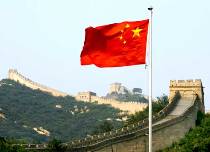Beijing's increasing influence in immediate neighbourhood of India has made it a bit nervous, but bilateral trade between the two Asian giants would be the stabilising force in Indo-China relationship, a noted American expert on China has said.
 "India is contiguous with China. Whereas China is authoritarian, India is a democracy. I think India is playing a great game with China over Bangladesh and Sri Lanka, and to an extent in Nepal," Robert Kaplan, Senior Fellow at the Center for a New American Security, said.
"India is contiguous with China. Whereas China is authoritarian, India is a democracy. I think India is playing a great game with China over Bangladesh and Sri Lanka, and to an extent in Nepal," Robert Kaplan, Senior Fellow at the Center for a New American Security, said.
Kaplan, a noted journalist, said both China and India are offering the governments in these countries various aid packages. "I think it was loans that India offered the Prime Minister of Bangladesh back last January were a result of what China was offering them," he said.
"China has been basically supplying the Sri Lankan armed forces from top to bottom, from assault rifles up to fighter jets, and was an indirect influence in helping the Sri Lankan government winning the civil war against the Tamil tigers. This makes India very nervous obviously," he noted.
"India and China have, I think, the world's largest bilateral trading relationship. Their economies are complementary rather than competitive. This will be a stabilising force in Indian-Chinese relations," said Kaplan.
In his piece 'The Geography of Chinese Power" in the latest issue of the Foreign Policy magazine, Kaplan said it is India that can balance the military power of China in Asia. "Europe is declining as a military -- as a sphere of military power as Asia is increasing. India will balance against China. India's building a great navy, going from the fifth-largest navy in the world to perhaps the third. So this is an area of the world where nationalism still lives, where militaries are not something to be embarrassed or ashamed about the way they are in parts of Europe," he said.
"As China moves south -- in other words, expanding its influence along the Indian Ocean littoral -- India seeks to move in terms of influence east and west, out to the borders of former British India, and this is going to mean a very tense relationship between India and China in the future," Kaplan said.
China's growing influence, which would be a geo-political challenge, would become a sort of hegemony in the eastern hemisphere like the US' in the western hemisphere, he added.







 © 2025
© 2025